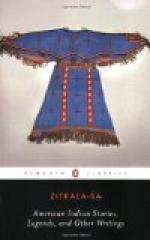“When in 1913 inquiry was made into the accounting and reporting methods of the Indian Office by the President’s Commission on Economy and Efficiency, it was found there was no digest of the provisions of statutes and treaties with Indian tribes governing Indian funds and the trust obligations of the government. Such a digest was therefore prepared. It was not completed, however, until after Congress adjourned March 4, 1913. Then, instead of being published, it found its way into the pigeon-holes in the Interior Department and the Civil Service Commission, where the working papers and unpublished reports of the commission were ordered stored. The digest itself would make a document of about three hundred pages.”
UNPUBLISHED OUTLINE OF ORGANIZATION.
“By order of the President, the commission, in cooperation with various persons assigned to this work, also prepared at great pains a complete analysis of the organization of every department, office and commission of the federal government as of July 1, 1912. This represented a complete picture of the government as a whole in summary outline; it also represented an accurate picture of every administrative bureau, office, and of every operative or field station, and showed in his working relation each of the 500,000 officers and employes in the public service. The report in typewritten form was one of the working documents used in the preparation of the ‘budget’ submitted by President Taft to Congress in February, 1913. The ‘budget’ was ordered printed by Congress, but the cost thereof was to be charged against the President’s appropriation. There was not enough money remaining in this appropriation to warrant the printing of the report on organization. It, therefore, also found repose in a dark closet.”
TOO VOLUMINOUS TO BE MADE PART OF THIS SERIES.
“Congress alone could make the necessary provision for the publication of these materials; the documents are too voluminous to be printed as a part of this series, even if official permission were granted. It is again suggested, however, that the data might be made readily accessible and available to students by placing in manuscript division of the Library of Congress one copy of the unpublished reports and working papers of the President’s Commission on Economy and Efficiency. This action was recommended by the commission, but the only official action taken was to order that the materials be placed under lock and key in the Civil Service Commission.”
NEED FOR SPECIAL CARE IN MANAGEMENT.
“The need for special care in the management of Indian Affairs lies in the fact that in theory of law the Indian has not the rights of a citizen. He has not even the rights of a foreign resident. The Indian individually does not have access to the courts; he can not individually appeal to the administrative and judicial branches of the public service for the enforcement of his rights. He himself is considered as a ward of the United States. His property and funds are held in trust. * * * The Indian Office is the agency of the government for administering both the guardianship of the Indian and the trusteeship of his properties.”




